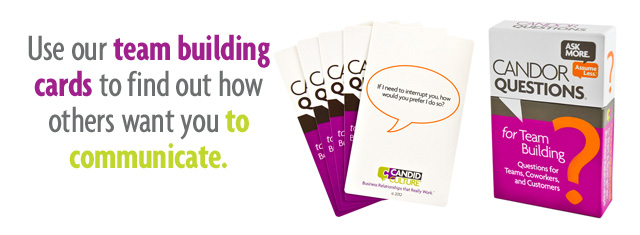Don’t Over Communicate – Less Is More
I wrote a repair person, who worked in my house, a two-page, single spaced list of all the things that needed addressing. Then I followed up with seven text messages. I don’t want people to have to guess what they have to do. I want to be thorough. It feels like the right and helpful thing to do.
The problem? The repair person didn’t read my list. It was too long. I would have been better off saving my time and saying nothing if he wasn’t going to read the list anyway.
When people send me an email with five paragraphs, my eyes glaze over. I close the email promising to read it later, but don’t until the sender asks if I received their email. People are busy and have to choose where to invest time. When it comes to communication, often, less is more. The question is, how to be succinct and still be thorough? How do you make sure people know what’s expected without providing so much information that nothing gets read?
I’m going to admit, I struggle with this.

I’ve decided to create some communication rules for myself. I’m hoping they’ll be helpful to you as well.
- Draft communications and save them as a draft. Read them again a few minutes later and ask, “Can I say this in half as many words? Is all of this information necessary?”
- Think communications through rather than communicating impulsively. I’m someone who operates with a high sense of urgency. I suspect my sense of urgency has helped me to be successful personally and professionally, but it also has me send messages before I’ve thought everything through, which leads to seven text messages, rather than one.
- Limit yourself to one or two messages. When you know you can send only one email or text message, you’ll likely be more thoughtful about the communications.
- Draft succinct instructions and then ask the person what they’re planning to do. This is a delegation technique. Require the person to whom you’ve delegated to tell you what they know or don’t know. Then you know how to help.
I suspect that providing the right amount of detail will be something I’ll struggle with forever. The key take aways are this:
People often don’t read long communications. If you can say it in fewer words, do so. Shorter is better. Be complete, but don’t go overboard. Make sure things are said only one time. If you’re not sure someone read or understood what you said or wrote, ask them what they heard or read. Don’t ask, “Do you have any questions?” Or “Does that make sense?” Both are waste-of-time, non-questions.
When in doubt, less is more.



